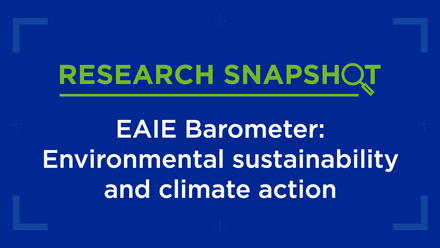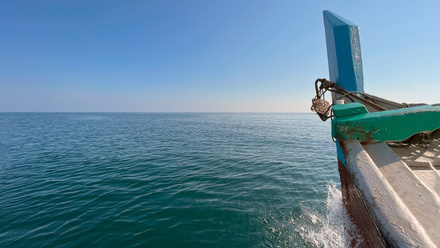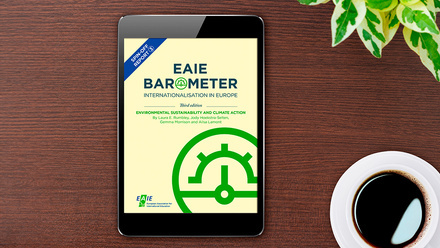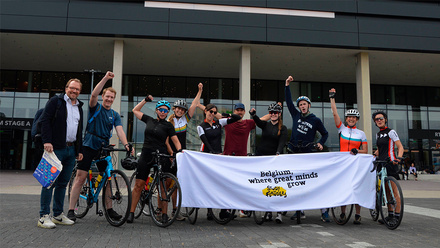The Sustainable Development Goals: universities taking action
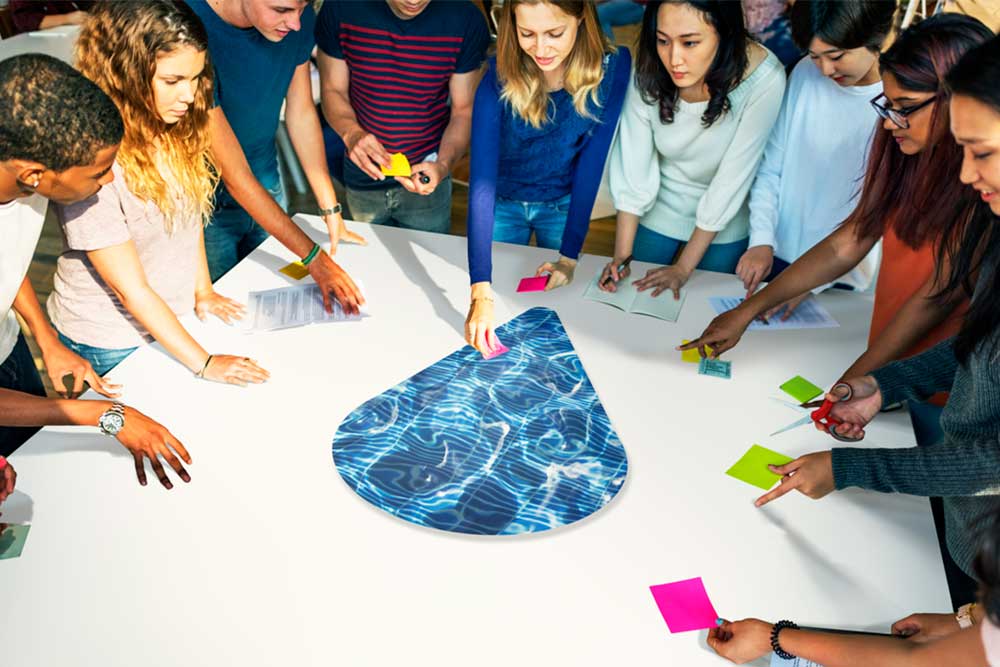
Now more than ever, universities around the world have come to understand the centrally important role that they play in delivering a better, more sustainable future for all. The EAIE has taken steps to further the sustainability initiative and encourage members of the field to do the same. Our most recent edition of Forum focused on the Sustainable Development Goals (SDGs) in relation to internationalisation, and we’ve covered it on our blog in order to further the initiative. In this post, the author explores how institutions are continuing their efforts towards sustainability and shares best practices in order to inspire readers to implement their own plan.
The United Nations’ most recent SDGs, which form part of the 2030 Agenda for Sustainable Development, specifically mention higher education for the first time. Sustainable Development Goal 4 is focused on education, and states the aim that “By 2030, ensure equal access for all women and men to affordable and quality technical, vocational and tertiary education, including university.” In addition, higher education has a centrally important role in delivering a number of the other SDGs. In order to fulfil this role, and provide inspiration for future action, two global networks – the International Sustainable Campus Network (ISCN) and the Global University Leaders Forum (GULF) – have published a report to showcase some best practice examples of actions universities are taking to deliver sustainable development. The report, Educating for sustainability, summarises some of those examples, based on the different types of actions that are being undertaken:
A holistic approach
Educating for sustainability gives a few examples on how sustainability is being implemented at a broader level. At Anglia Ruskin University (UK), sustainability is now a required element of every degree programme that is delivered, and is also integrated into a number of other aspects, including library resources, student art exhibitions and volunteer programmes. The Stuttgart University of Applied Sciences (Germany) has developed a specific centre for sustainable development that undertakes projects focused on a number of areas, including: teaching, research, operations and governance to empower students as change agents. Another institution that has positioned the SDGs at the heart of all programmes is Imperial College London, featured in Winter Forum. Imperial, a world-leading STEM institution, makes a point to instil within all of its students the importance of collaboration in order to further global priorities.
Research for sustainability
Institutions have begun to focus their research on sustainability, and for good reason. While some researchers have always focused on sustainability, more researchers than ever before are considering the impact of the SDGs in their work. According to Educating for sustainability, the University of British Columbia’s (Canada) SEEDS (Social Ecological Economic Development Studies) Sustainability Program has been created, delivering a partnership between 6500 students, faculty and staff, in order to facilitate the development of a large number of innovative and impactful sustainability projects and integrating academic and operational work on sustainability. Relatedly, the University of Oxford’s Carbon Management System develops and identifies projects that could take action to reduce carbon emissions across campus. As ideas are developed, they are proposed to a panel of experts, where several are then chosen to undergo further development.
Sustainability across the curriculum
The Ecole Polytechnique Fédérale de Lausanne (EPFL; Switzerland) has developed a Global Issues course for first-year science and engineering students aimed at helping students gain ‘ready-to-use’ skills for their working life on a range of topics relevant to sustainable development, such as health, food, mobility, energy, climate and communication. Also in Switzerland, the University of Geneva has created a master’s degree programme in urban and regional development, which aims to develop the students’ expertise in a range of areas, including geography, architecture, landscape architecture, sociology, urban and regional economics, law and geographical information systems.
Other institutions are still working to reform their curricula, in order to promote sustainability in developing countries. The EAIE published an article about the University of Eastern Finland collaborating with the Kyrgyz National Agrarian University in its most recent issue of Forum. The two universities are working together, facilitated by the United Nations’ Food and Agriculture Organisation, to create curricula programmes focused on sustainable fishing and aquaculture.
Collaborating to address global challenges
Higher education institutions have a uniquely important role to play in delivering solutions to the SDGs, and one of the most efficient ways to do so is to create partnerships to further research and development. A great example of this kind of collaboration was recently highlighted on the blog: the U4 Network is a group of four universities working toward the shared goal of creating a more sustainability.
Educating for sustainability also brings to light a number of organisations working together. Carnegie Mellon University (CMU, USA) highlighted the importance of convening stakeholders by hosting a student-led Sustainability Weekend Conference. The conference‘s goal was to create conversations between CMU students and stakeholders on a range of sustainability issues such as resiliency, activism, public art, women’s health and environmental justice. In addition, the Korea Advanced Institute of Science and Technology (KAIST; South Korea) developed and hosted a number of events that relate to their Energy, Environment, Water and Sustainability interdisciplinary programmes. Their KAIST Graduate School of Green Growth (GSGG), which seeks to tackle the important issues for sustainability-minded students and world-renowned climate and energy policymakers and scholars.
While the need to address the SDGs, and sustainable development more generally, is pressing and transversal, the issues and actions that are needed are also complicated. The EAIE is dedicated to driving responsible international higher education, and in order to continue taking action on sustainability endeavours, it is vital that we share the success stories and create a platform for partnership. Providing higher education professionals with best practice examples of projects and activities that could be developed, specifically those that focus on increasing knowledge and understanding of the topic among students and higher education institutions, is therefore an invaluable resource for future action on sustainability.
If you haven’t yet, check out our most recent edition of Forum for more on the Sustainable Development Goals as related to international higher education.



